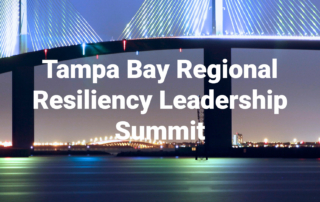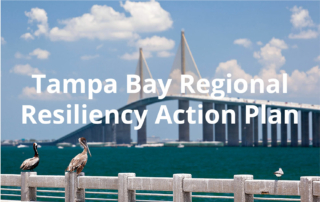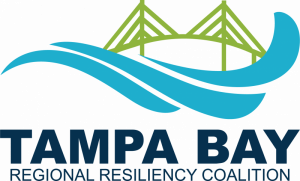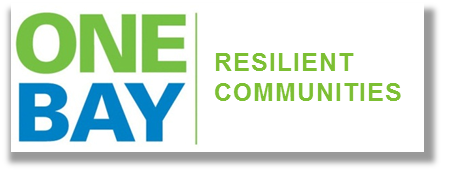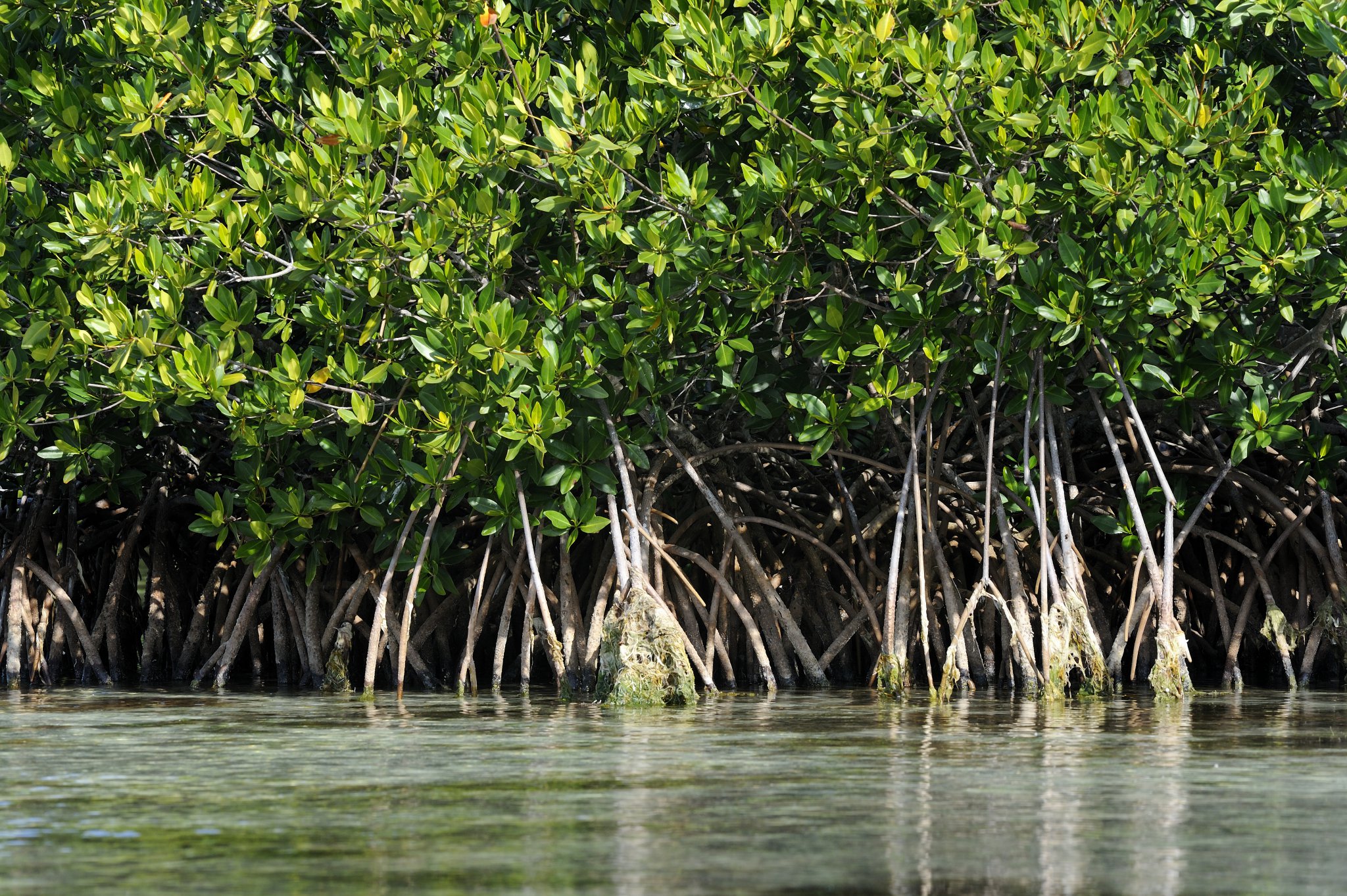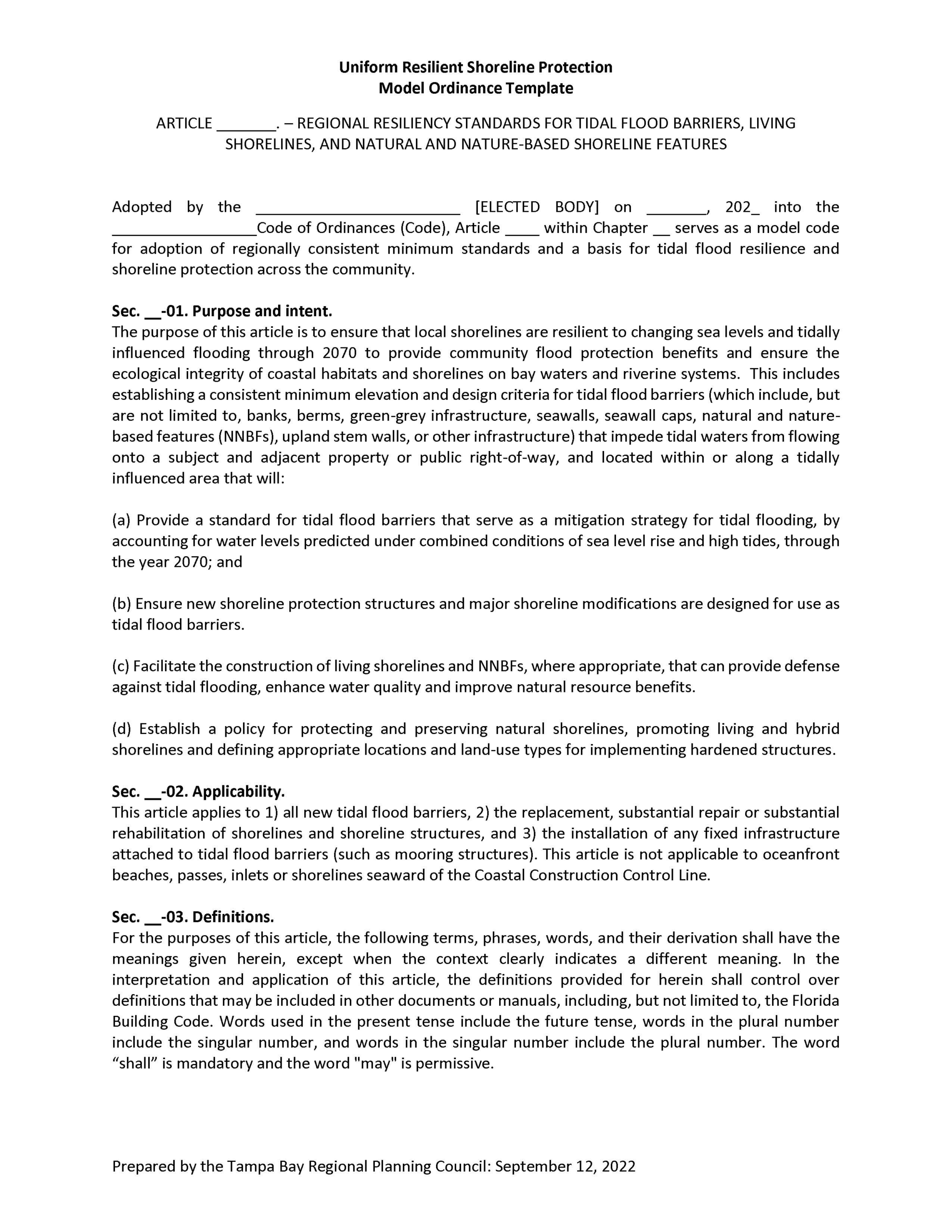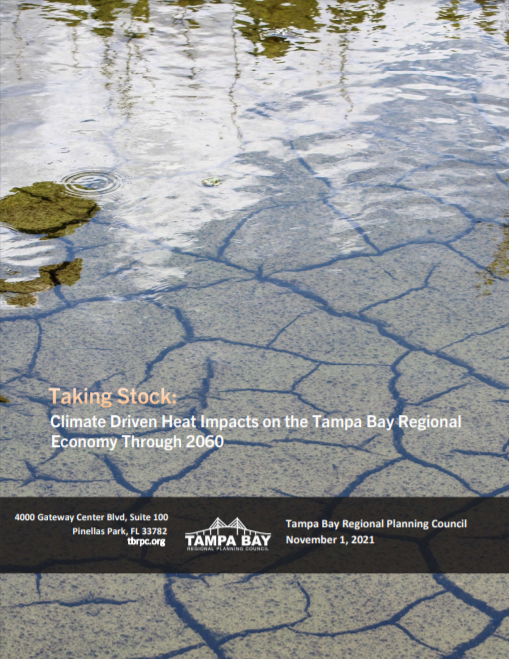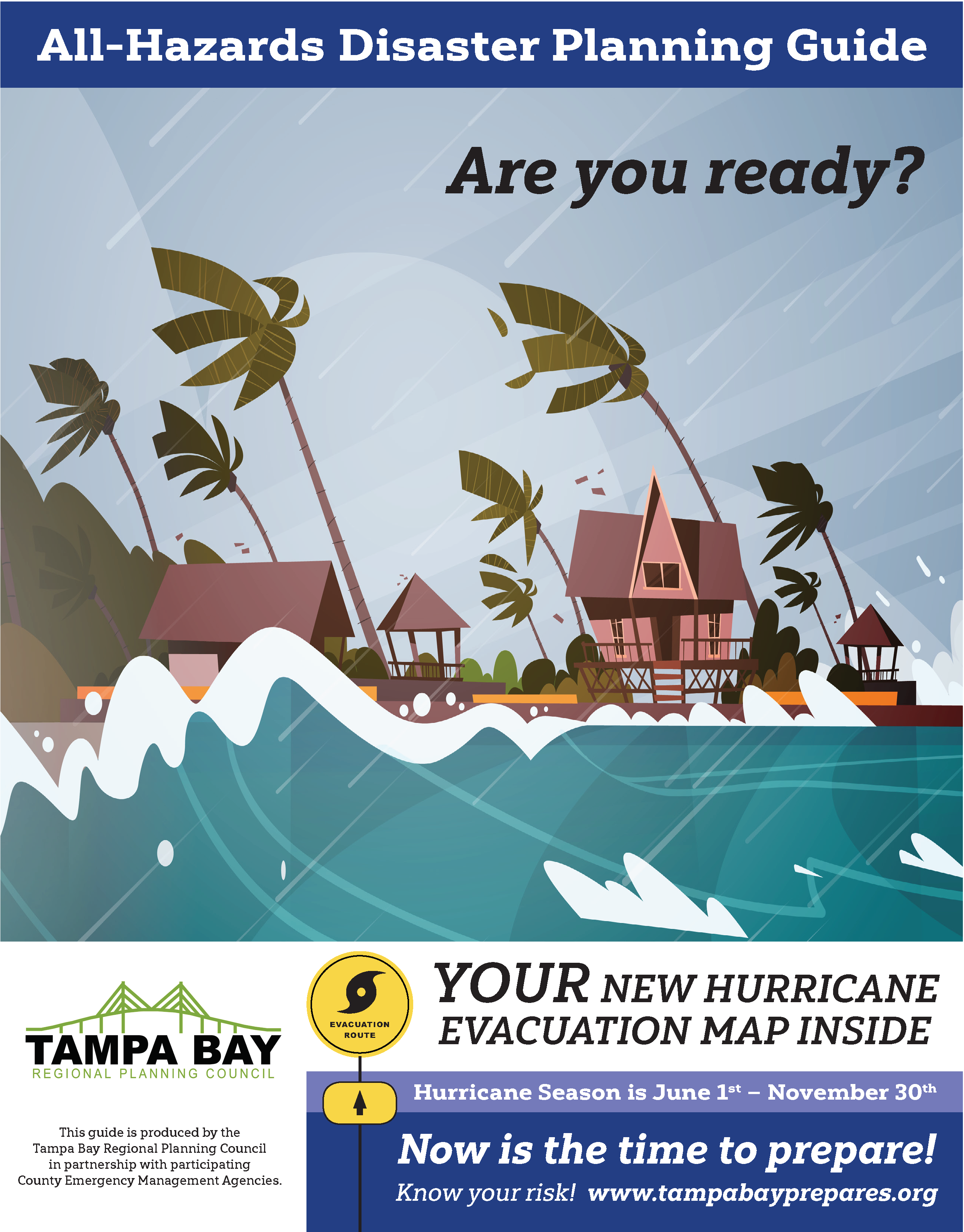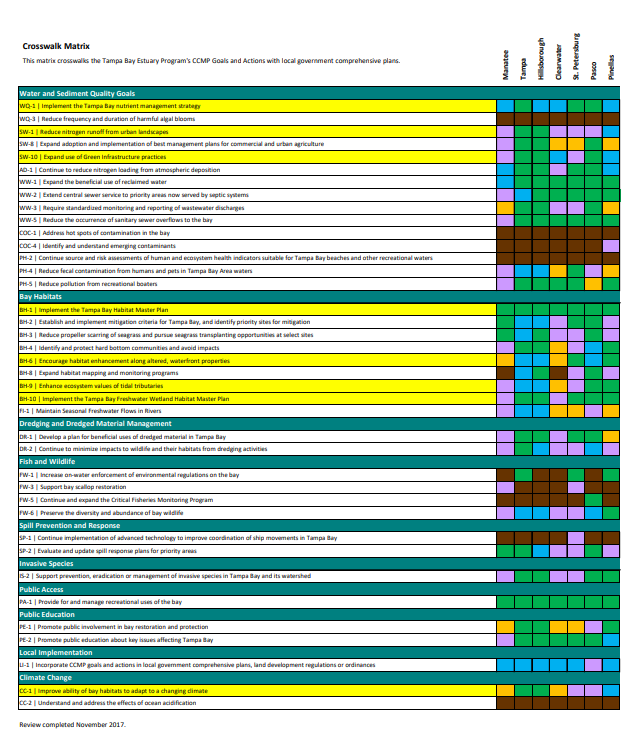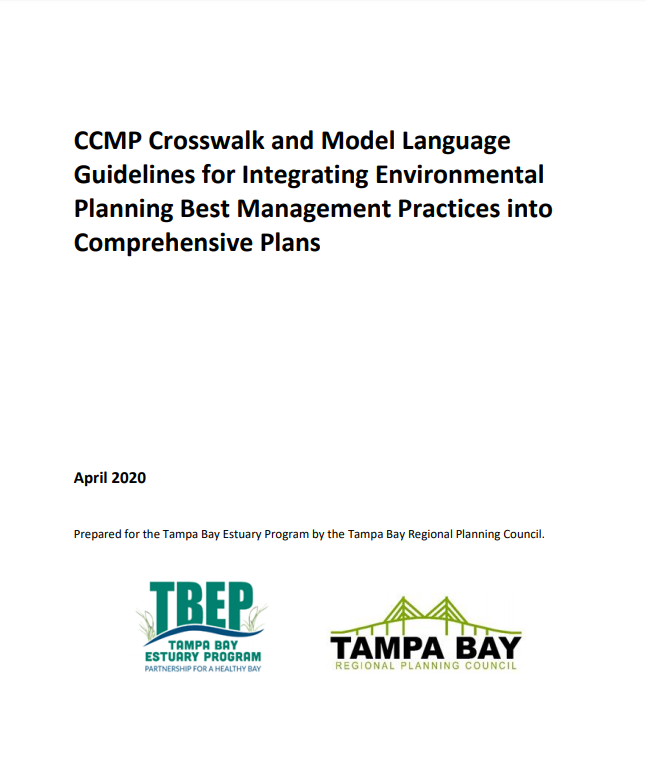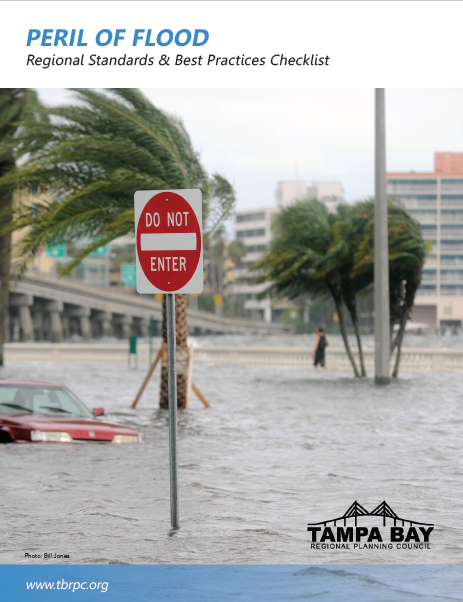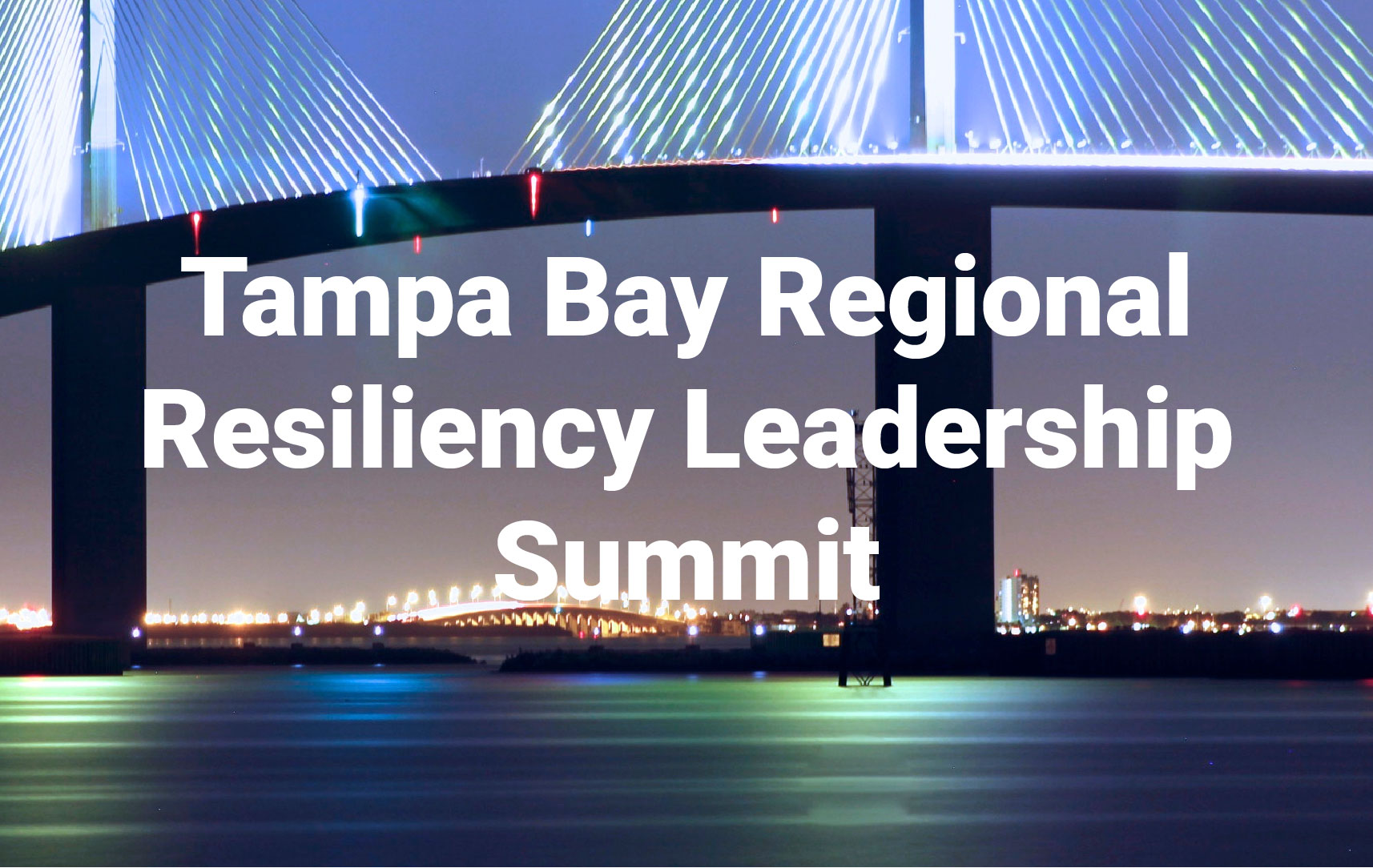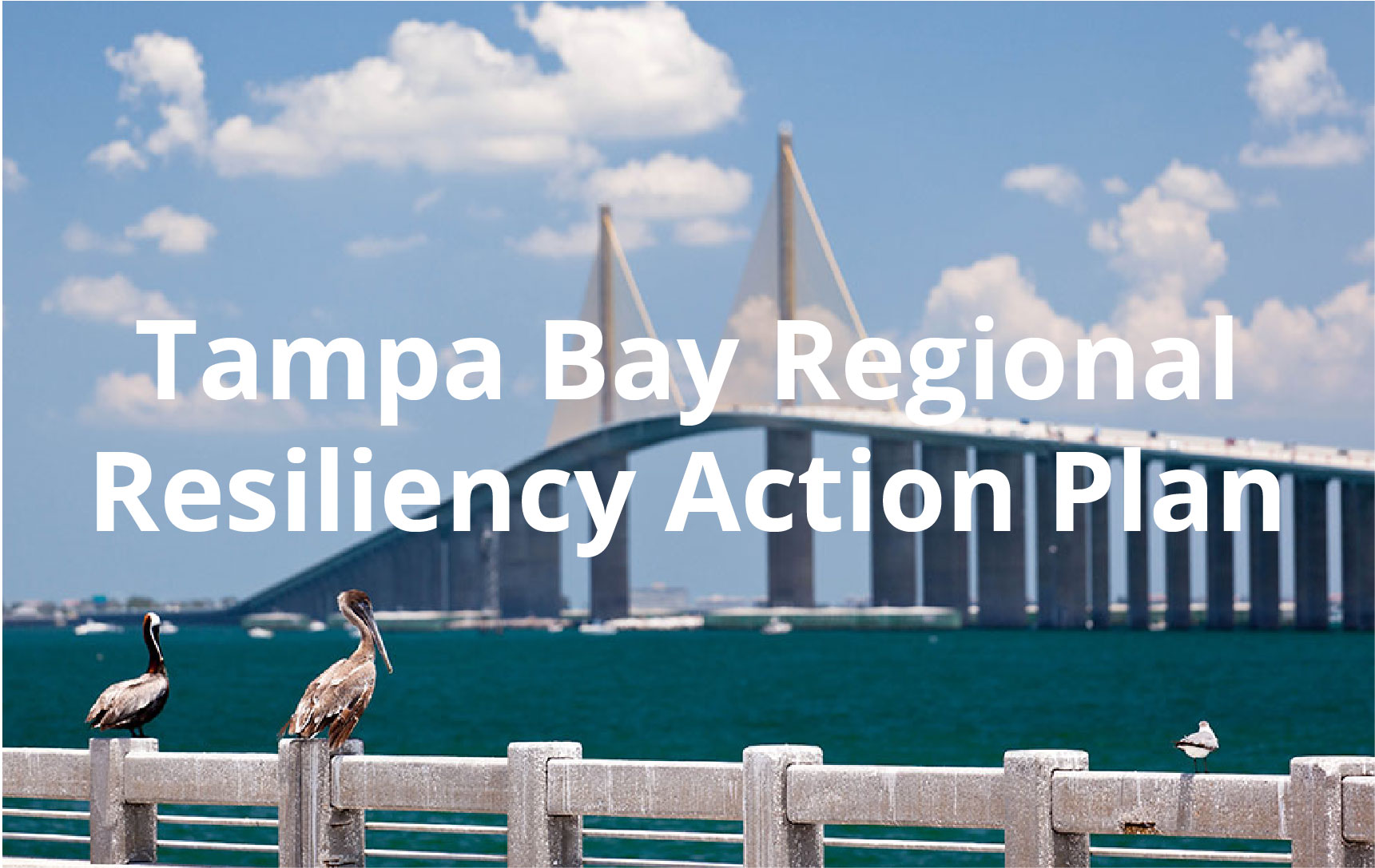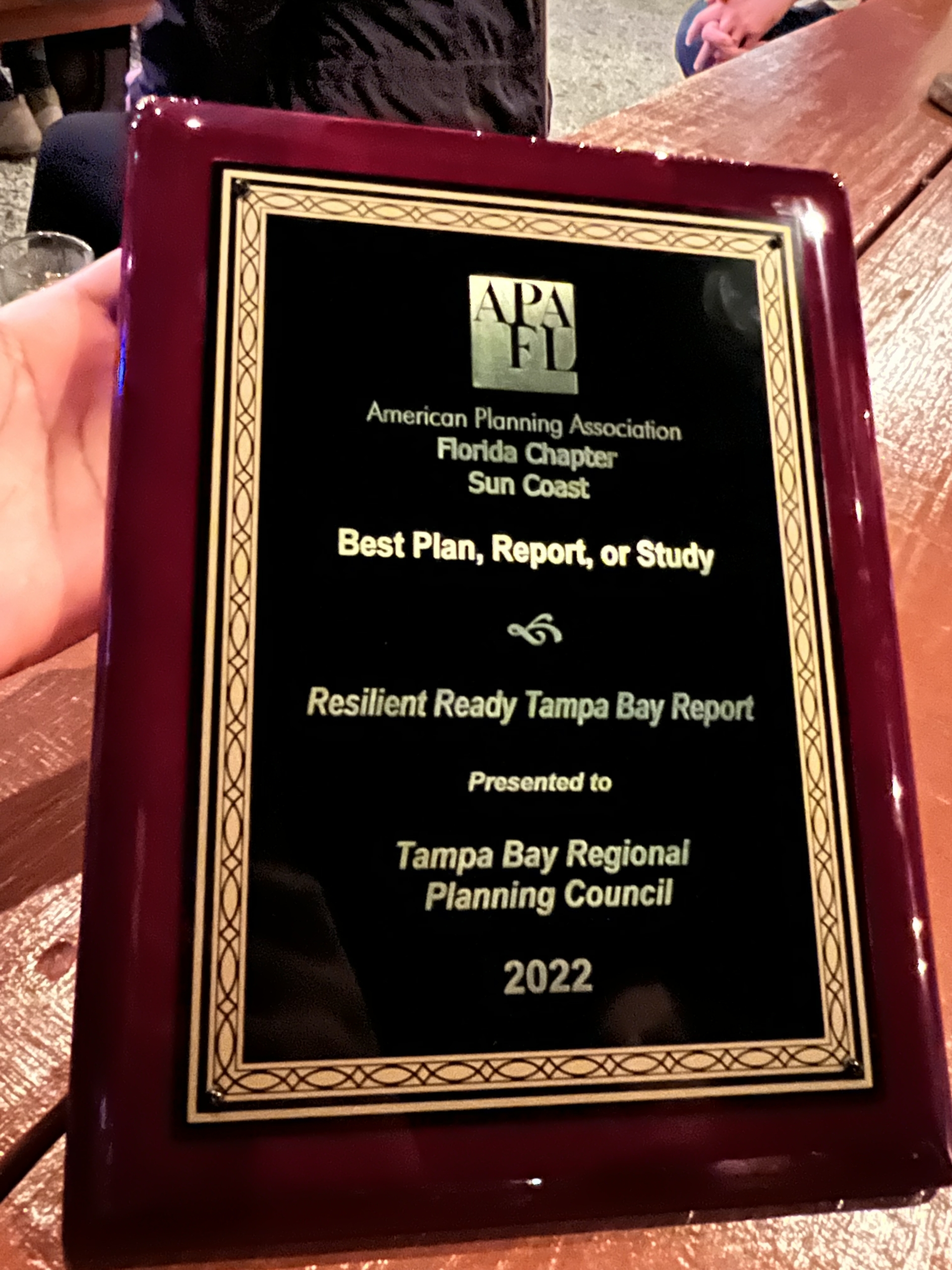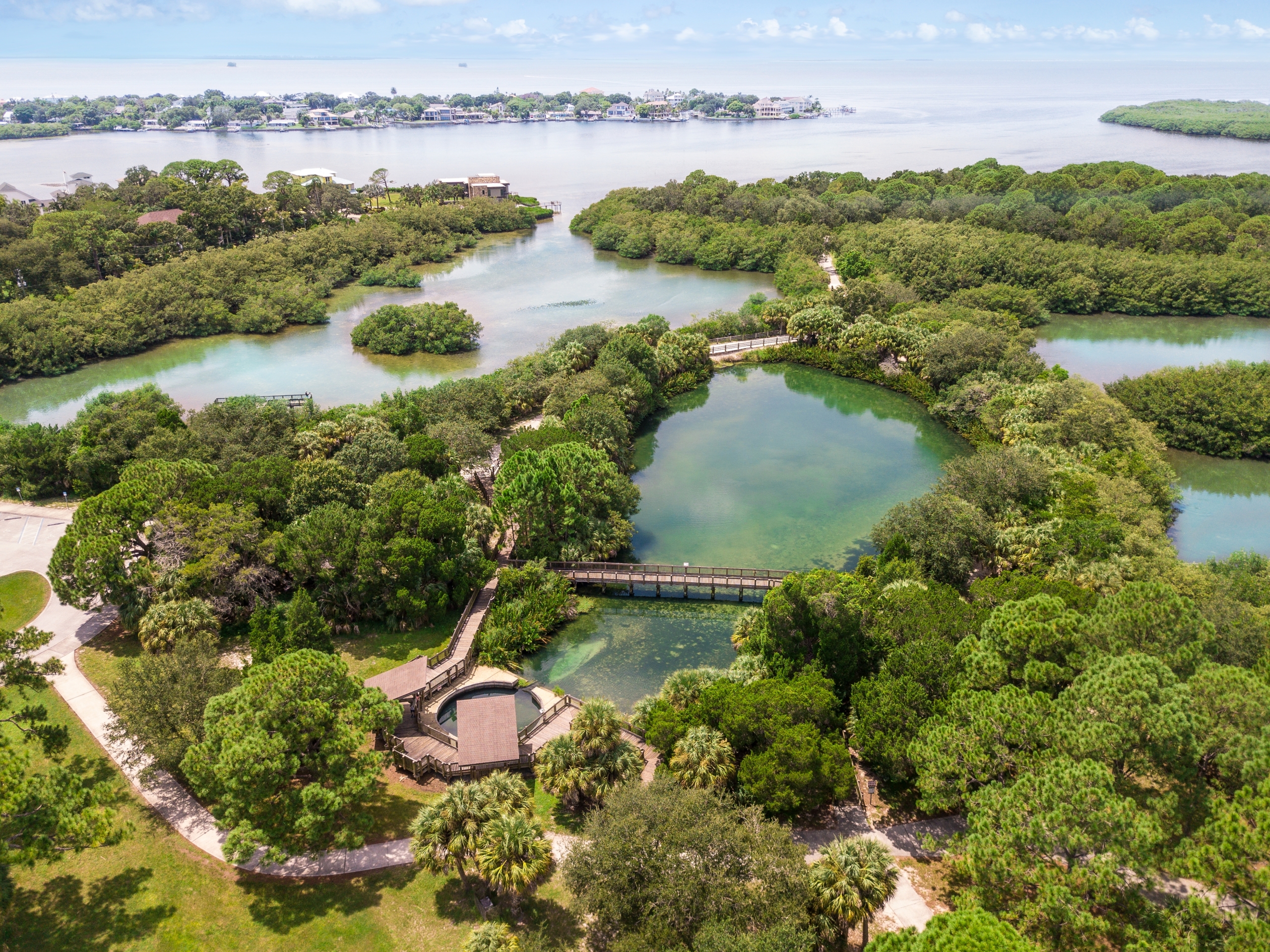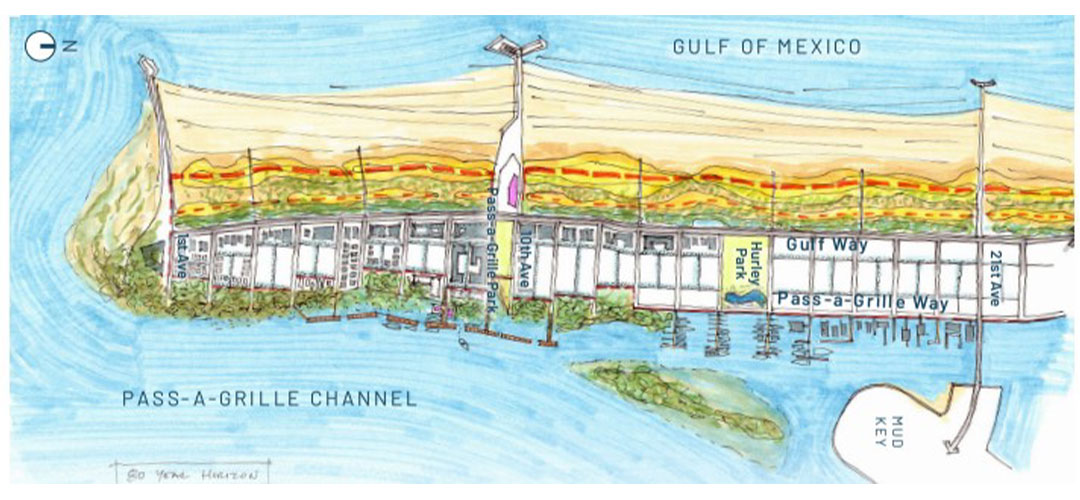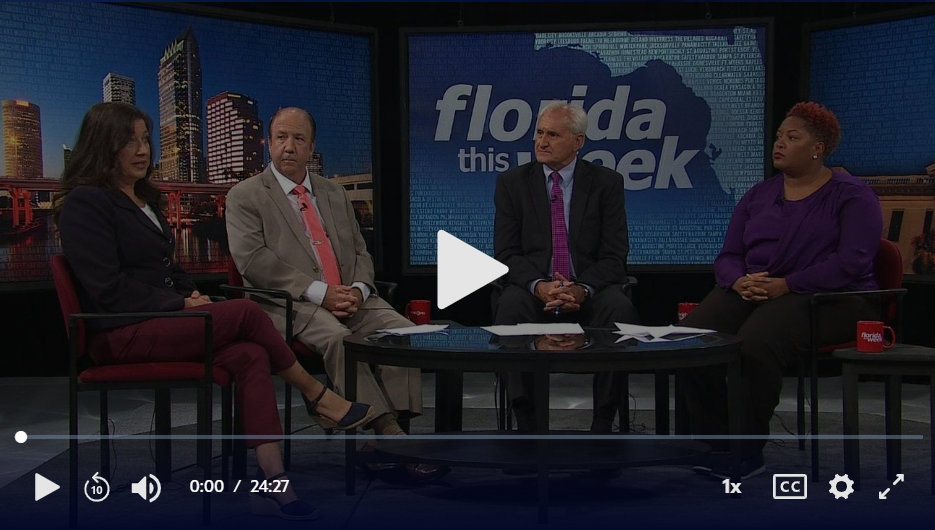RESILIENCY
RESILIENCY
Resiliency Planning
Topics
Program Highlights
Quick Links
OBJECTIVES
Resiliency objectives of the TBRPC include:
- Improve the regional capacity to reduce adverse impacts associated with climate change through the creation of a framework that facilitates discourse, encourages knowledge sharing, generates consensus and promotes the pragmatic application of scientific data in public policy.
Tasks and activities to support these objectives include but are not limited to:
- Facilitate development of a Regional Resilience Action Plan, in collaboration with local governments and stakeholders, that aligns with federal agency resilience goals and internationally accepted best practices.
- Support the development and encourage the use of regionally adapted sea level rise scenarios to support consistent planning and policy development.
- Support development of model language for climate adaptation and mitigation goals, objectives and policies for comprehensive plans, land development regulations, business continuity plans, etc.
- Coordinate with key organizations to offer resilience education programs for local governments to meet evolving needs.
- Conduct reviews of decision-support tools such as GIS models, risk/ vulnerability assessments, model ordinances, Best Management Practices, and develop new versions as needed.
- Continue to support the MPOs to assess changing resilience risks and planning needs for transportation systems.
- Engage members in the ONE BAY Working Group and other professional networks across the counties in analysis of resilience impacts, issues, resources, programs and best practices.
- Conduct periodic analysis of local programs and needs, and serve as a repository of relevant research, programmatic efforts and decision support tools.
COMMUNITY ENGAGEMENT
COMMUNITY ENGAGEMENT
Resiliency Coalition
Local governments are invited to join the Tampa Bay Regional Resilience Coalition, coordinated by the Tampa Bay Regional Planning Council. The TBRPC is comprised of members from Citrus, Hernando, Hillsborough, Manatee, Pasco and Pinellas counties and the 21 municipalities that come together to discuss complex regional issues; develop strategic regional responses for resolving them; and build consensus for setting and accomplishing regional goals.
The 2020 Leadership Summit:
Champions of Change: Creating Resilient Communities 2030
Local, regional and national experts defined a vision for transforming our communities over the next 5-10 years to address major economic, social and environmental challenges. Goals and actions were defined for the Tampa Bay Regional Action Plan.
ONE BAY Resilient Communities
Technical experts from various land use planning agencies, environmental groups, the development community, and transportation agencies convene to present information and facilitate dialogue about regional resiliency solutions.
Resilient Shorelines and Spaces Workgroup
The purpose of the workgroup is to and develop recommendations and guidance documents for the Coalition to help local governments become more resilient.
EDUCATION & RESOURCES
EDUCATION & RESOURCES
Resilient Shorelines Model Ordinance Template
The new Resilient Shorelines Model Ordinance template is one the first of its kind in the state to define an integrated set of policies to ensure that all types of shoreline protection strategies are designed to be resilient to changing sea levels and tidally influenced flooding through 2070, using best practices. It also considers both community flood protection benefits and ecological integrity of coastal habitats and shorelines on bay waters and riverine systems.
The ordinance establishes shoreline type standards, a coordinated policy for protecting and preserving natural shorelines, promoting living and hybrid shorelines, and defining appropriate locations and land-use types for implementing seawalls and hardened structures.
Taking Stock: Climate Driven Heat Impacts on the Tampa Bay Regional Economy Through 2060
Climate Driven Heat Impacts on the Tampa Bay Region Under a High Emissions Scenario considers the implications of a high greenhouse gas emissions climate scenario — dubbed the High Emissions scenario, on critical points of the regional economy — agriculture, mortality rates, labor productivity, and energy demand. This report delineates the magnitude of key potential impacts to the region’s economic and fiscal baseline and some of the indirect and interaction effects between climate change and policy. It will be up to future efforts to explore how adaptation and mitigation measures will change the region and the state’s course.
CSAP SLR Recommendations 2019 Final
Disaster Planning Guide
Hurricane / All-Hazards Disaster Planning Guide for residents and businesses developed in collaboration with multiple county’s emergency management offices. TBRPC’s guide provides preparedness information for hazards including hurricanes, floods, tornadoes, hazardous materials, and terrorism. The guide includes hurricane evacuation maps for participating coastal counties in the Tampa Bay area.
CCMP Crosswalk and Model Language Guidebook
Effective planning for the Tampa Bay region calls for a whole-systems approach to estuary management. In an effort to improve the implementation of the Comprehensive Conservation Management Plan (CCMP), TBRPC partnered with Tampa Bay Estuary Program, and several local government stakeholders sought to develop guiding documents that enable communities to more easily incorporate estuary management considerations into the broader structure of comprehensive land use planning. By integrating policies which support estuary protection within elements of a community’s comprehensive plan, local governments can provide a basis for development decisions regionally. Learn more.
Peril of Flood Checklist & Workshops
In 2015, the Florida Legislature passed Senate Bill 1094, titled “Peril of Flood”. The new law, which became effective July 1, 2015, specifies new requirements for the coastal management element of a local government’s comprehensive plan related to coastal flooding and the related impacts of sea level rise.
Resources & Tools
Sea level rise models, projections, maps, viewers, data, reports, and resiliency best practices.
ENERGY RESILIENCE
Clear Sky Tampa Bay
Developing a Resilience-Based Siting and Valuation Toolkit for Solar+Storage
Long-lasting power outages caused by hurricanes and other disasters have major impacts on communities and local economies. Leading organizations and energy agencies across the country are working to evaluate the role of solar energy and battery storage on specific buildings to improve local community resilience goals.
An innovative project, led by the Tampa Bay Regional Planning Council, has been selected by the U.S. Department of Energy’s National Renewable Energy Laboratory (NREL) to participate in a collaborative research effort to develop novel applications of solar energy. NREL is leading the Solar Energy Innovation Network with funding from the U.S. Department of Energy’s Solar Energy Technologies Office. NREL pursues fundamental research and development of renewable energy and energy efficiency technologies to transform the way we use energy.
Clean Energy Workgroup
Support Local Government efforts to develop objectives, strategies, and deployment plans for overall carbon footprint reduction through increased energy efficiency, fuel reduction, targeted clean energy goals, and innovative energy resilience projects.
HOUSING
Housing Affordability & Resiliency
On January 7, 2020, The JPMorgan Chase Foundation awarded $500,000 to the Tampa Bay Regional Planning Council to implement a new initiative called the Resilience and Energy Assessment of Communities and Housing (REACH) that supports the Regional Resilience Coalition and member governments.
The REACH Project will bring together the region’s housing, resilience, and recovery planning experts and community leaders to assess potential risks that local communities face from extreme weather and sea level rise, and define new strategies and policies to increase affordable, resilient housing development and redevelopment.
REGIONAL ACTION PLAN
Regional Resiliency Action Plan
The Tampa Bay Resilience Coalition Memorandum of Understanding tasks members with developing a Regional Resiliency Action Plan (RRAP). The MOU states that the Plan “shall include strategies for coordinated regional preparation for and adaption to a rapidly changing global environment based on mapping of projected sea-level rise and resulting amplification of localized impacts of hurricanes and tropical storms, and which shall identify funding strategies at the local, state and federal levels for mitigation and adaptation actions to deal with those impacts.”
EPA Gulf of Mexico Program
In September of 2019, the U.S. Environmental Protection Agency awarded the Tampa Bay Regional Planning Council a program grant to conduct workshops to identify vulnerabilities and resiliency needs throughout the Tampa Bay Region of Florida. This project will feed into a Regional Resiliency Action Plan that can be implemented by the local governments in the region.
TRANSPORTATION
TRANSPORTATION
Federal Highway Administration Pilot Project
In March 2019, the Tri-County TMA (Transportation Management Area) comprised of the Hillsborough, Pinellas, and Pasco MPOs, FDOT, and TBPRC received a FHWA administration grant to conduct a regional transportation vulnerability analysis. Hillsborough MPO went through this process in 2014 and the effort is being expanded into the Tampa Bay Region. We are one of 11 pilots competitively selected from around the county.
News & Stories
Tampa Bay Regional Resiliency Leadership Summit to feature insights from two coastal mayors
The Tampa Bay Regional Planning Council and Regional Resiliency Coalition will host its third Tampa Bay Regional Resiliency Leadership Summit at the Hilton Clearwater Beach Resort on Thursday, May 4 and Friday, May [...]
Tampa Bay Regional Planning Council approves Regional Resiliency Action Plan
The plan will be rolled out to area governments to help guide actions on combatting flooding, extreme weather and other impacts of a changing climate. PINELLAS PARK, Fla. (November 21, 2022) - The [...]
Resilient Ready receives APA Sun Coast Award for Best Report
Tampa Bay Regional Planning Council's Resilient Ready Tampa Bay won the Best Plan, Report, or Study Award at the 2022 APA Sun Coast Section Awards last week! Resilient Ready Tampa Bay was a [...]
New Shoreline Model Ordinance Template Released
On October 25th, 2022, Tampa Bay Regional Planning Council held a webinar to rollout the new Resilient Shorelines Model Ordinance template. TBRPC staff and project team subcontractor Erin Deady, Deady PA reviewed the [...]
Resilient Ready Tampa Bay Supports Innovative Green Infrastructure
Environmental Science Associates | October 14, 2022 There is a growing interest among local governments to collaborate across borders and consider multi-level, innovative infrastructure design strategies to reduce flooding from storm surge, rising sea [...]
Florida This Week, a discussion about Climate Change
FLORIDA THIS WEEK A Climate Special | Sept 30 Season 2022 Episode 39 | 27m 31s|Video has closed captioning. A live-audience special from WEDU | Florida's coastline is projected to be [...]
News & Stories
Tampa Bay Regional Resiliency Leadership Summit to feature insights from two coastal mayors
The Tampa Bay Regional Planning Council and Regional Resiliency Coalition will host its third Tampa Bay Regional Resiliency Leadership Summit at the Hilton Clearwater Beach Resort on Thursday, May 4 and Friday, May [...]
Tampa Bay Regional Planning Council approves Regional Resiliency Action Plan
The plan will be rolled out to area governments to help guide actions on combatting flooding, extreme weather and other impacts of a changing climate. PINELLAS PARK, Fla. (November 21, 2022) - The [...]



